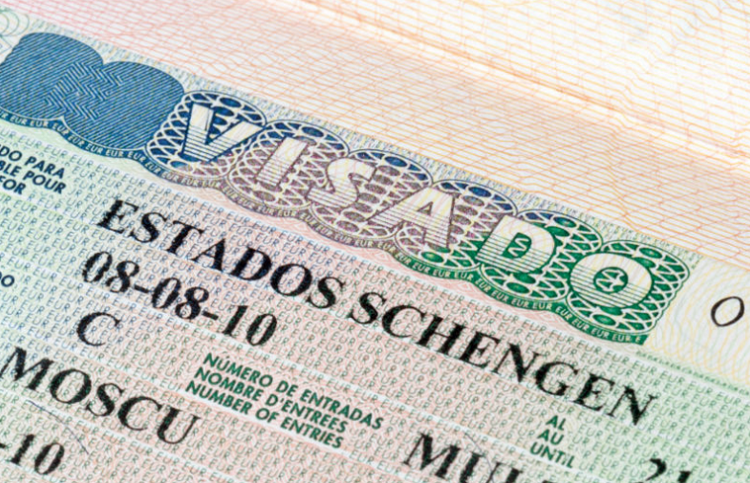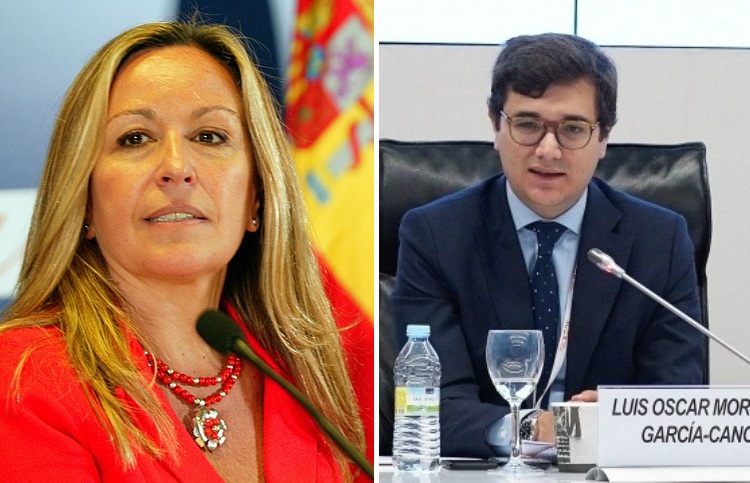Eduardo González
Over the last twenty years, the Ministry of Foreign Affairs has detected “irregular events” in the process of granting visas at the Spanish embassies and consulates general in at least eight countries, but “at present there are no cases”.
“Over the last 20 years, irregular events have been detected in the process of granting visas by the staff of embassies and consulates general in Bolivia, the Democratic Republic of the Congo, Egypt, Iraq, Morocco, Namibia, Russia and the Ukraine”, the government said at the end of December in response to a parliamentary question from MP Jon Iñarritu, of the Euskal Herria Bildu Group. “It is not possible to provide the exact number of visas affected because the rules on archiving allow paper files to be destroyed after two years, given the enormous volume of files processed each year”, it continued. “There are no cases at present”, it added.
According to the government, “irregularities can be of many kinds: payment to obtain visas by bypassing legal formalities and requirements, or providing false documentation which is later made to disappear, manipulation of biometric data, and so on”. “The cases were resolved through judicial or administrative channels depending on the seriousness of the case”, it said.
“The Government, through the Ministry of Foreign Affairs, European Union and Cooperation, gives the highest priority to the legality and correctness of administrative processes including especially the management of visas”, the Executive assured. For this reason, “when complaints are made or irregular facts are found, an immediate internal investigation is opened by the General Services Inspectorate” and, if signs of illegal actions are found, “the corresponding disciplinary file is formally opened and, if necessary, the information is made available to the judicial authority”.
The most serious and numerous cases of irregularities in the granting of visas have been recorded in Spain’s representations in Morocco since 1992, when this requirement was imposed for entry into Spain. During this time, illegal visa purchase schemes have appeared and been dismantled at the Spanish consulates in Rabat (2016 and 2018), Tetouan (2003), Tangiers (1996 and 2010) and Casablanca (2007), according to the specialised media LegalTeam.
To cite some recent cases, in September 2016 the Spanish Consulate in Rabat opened an internal investigation after detecting “irregularities” in the granting of visas to Moroccan citizens who had obtained permission to travel to Spain without demonstrating that they met the requirements of the European Schengen regulations. That same year, the Consulate General in Rabat discovered that it had issued 28 fraudulent visas, which it immediately cancelled when it became aware that the files presented in the visa process presented “anomalies”, according to the Ministry of Foreign Affairs. In 2018 the Moroccan police broke up a gang of thirteen members and four local officials at the same Consulate and at the same time the then undersecretary of the Ministry of Foreign Affairs, Beatriz Larrotcha, admitted to Congress the seriousness of the irregularities in the granting of false visas in Rabat.
One of the most notorious cases occurred in the Democratic Republic of the Congo. In April 2016, the Congolese authorities expelled an official from the Spanish embassy for her alleged involvement in a plot to steal blank visas in order to sell them in that country and in neighbouring Congo Brazzaville. In May of the same year, the Audiencia Nacional sentenced former ambassador Antonio Fernández de Mazarambroz to nine years’ disqualification for this reason, but the Public Prosecutor’s Office and the State Attorney’s Office subsequently determined that the diplomat had not charged any money for granting the visas and the Supreme Court acquitted him and revoked the sentence in 2017.
Another relevant case, which ended without consequences, occurred in September 2014, when the then Minister of Foreign Affairs, José Manuel García-Margallo, opened an investigation into an apparent “visa market” in the Spanish Embassy in Iraq, headed by José María Ferré de la Peña. Finally, the investigation concluded that there had been “no anomaly” and the case was therefore definitively closed.







